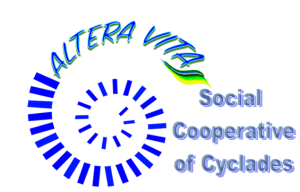Learning & Working in Digital Environments
Požiadavky na absolvovanie
Like so many aspects of our lives, how we learn and how we work has changed through technology. This section will help you to understand how to take advantage of online tools for learning and working. Previously, in order to learn we may have had to attend classes in person but now we can learn in lots of different ways and at times that suit us better. When we talk about e-learning we are referring to learning electronically. Digital tools also allow us to work in more flexible ways.

Learning objectives:
- Understanding the diverse opportunities for e-learning and how to access them effectively.
- Exploring Virtual Learning Environments (VLEs) and their role in facilitating interactive learning experiences.
- Becoming familiar with tools and platforms for remote work, including online meeting platforms and collaborative tools.
- Developing proficiency in using digital tools for collaboration, communication, and productivity in both learning and working environments.
Competencies you are developing:
- Digital literacy: Enhancing skills in using digital tools and platforms for learning and working.
- Adaptability: Adapting to changing environments, such as transitioning to remote work or online learning.
- Collaboration: Learning to collaborate effectively with others using digital tools and technologies.
- Time management: Developing strategies for managing time effectively in online learning and remote work settings.
- Communication: Improving communication skills through online platforms and virtual environments.
 Think for a moment...
Think for a moment...
- How has technology influenced the way you learn and work in your daily life?
- What are some challenges you face when adapting to new digital tools for learning or remote work?
- Have you ever encountered difficulties collaborating with others online, and if so, what were they?
- How do you manage your time effectively when working or learning in digital environments?
- What communication strategies do you find most effective when interacting with others online?
Posledná zmena: utorok, 25 júna 2024, 14:02

